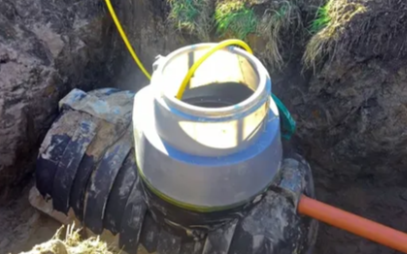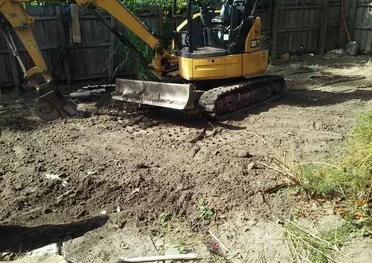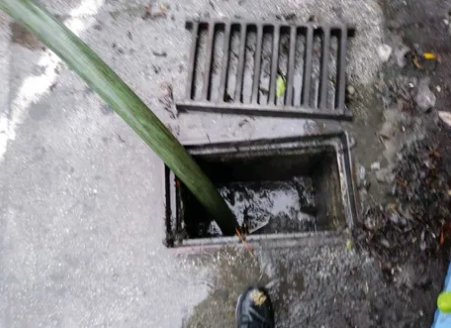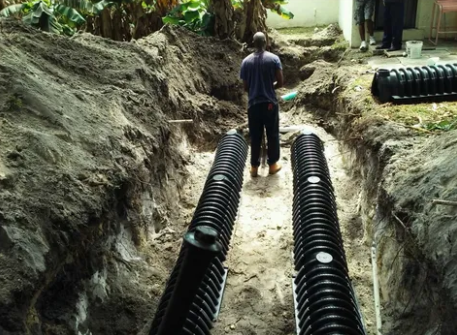Low levels of sewage in a septic tank indicate a leak. Before the leak can be repaired, the tank needs to be pumped out and cleaned in order to give it a thorough inspection.
In a properly working septic tank, there are three levels; on top is the scum – grease, oils, other materials lighter than water; a clear effluent in the middle; and solid waste on the bottom. Only the effluent should be exiting the tank.
Septic tanks rely on its natural bacterial process in breaking down wastes. The bacterial action becomes ineffective when items like medicine or disinfectants interact with the bacteria.
Minimize how frequently your septic tank needs to be pumped by staying on top of leaks in the home. Even seemingly small leaks from a toilet or shower can translate to hundreds of gallons of water over time filling your tank much faster.
Sewage odors wafting from your septic system? They indicate a problem. The best approach is to have the tank cleaned and thoroughly checked as soon as possible to pinpoint and repair the cause.
If you have a septic system, do not allow chemicals such as anti-freeze, household cleaners, gasoline, or other toxic substances to enter. They can corrode the tank as well as permanently pollute the leach field.
In suburban areas, there are sewers to carry household waste to municipal wastewater treatment facilities. However, septic tank systems provide the functions of both sewers and treatment facilities. #DidYouKnow
Companies with professional skills are always worth knowing, and when those skills can actually save you a lot of money and several headaches, you know they’re your best friend. That’s what a septic cleaning professional can become.
Annual inspections of a septic system are recommended to ensure proper operations and to determine whether the tank needs to be pumped. Those systems with moving parts often require more frequent inspections.
Typically, septic tank owners use commercial bathroom cleaners and laundry soap in moderation. Most prefer to clean their toilets, showers, and tubs with a mild detergent or baking soda. Avoid using a lot of bleach. #TIPS
Did you know that aside from the septic tank, the drain field also needs cleaning? Much of the waste cleaning process takes place in the drain field which is why septic tank cleaning also means checking the drain field.
The health of your septic tank is one of the main factors that determine the state of other systems in your house like plumbing and drainage. Regular maintenance and cleaning by expert services are necessary to avoid complications.
There’s always the risk of a septic tank leaking another time in the future, but cleaning experts can provide you with professional guidance to prevent the same problems and even further complications from happening later on.
According to the Environmental Protection Agency (EPA), the average septic tank system will require pumping every one to three years depending on the number of people living in the home. In addition, annual inspections are recommended to prevent costly repairs.
Did you know that parking a vehicle on septic system components could lead to ruptured pipes? Doing so could cause heavy damages to the septic system that’s not only dangerous to humans but will also cost thousands in repairs.
Some homeowners insist on doing repairs and septic tank cleaning themselves but nothing beats seeking help from professionals. There are states that require septic tank cleaning be done only by licensed technicians.
If you have a septic system, should you have a garbage disposal? Probably not. The finely ground products will float on the surface of the water and make their way into the lines and clog them. Consider composting food products.
Corroded, damaged, or failing baffle systems in septic tanks can contribute to other problems in the septic system since they will no longer prevent solids from flowing out into the septic absorption field.
If you have a septic system, do not allow chemicals such as anti-freeze, household cleaners, gasoline, or other toxic substances to enter. They can corrode the tank as well as permanently pollute the leach field.
Never flush these items into your septic tank: cat litter, diapers (cloth and disposable), dryer sheets, dirt, last night’s stew, cotton swabs, cigarette butts - to name just a few. They will clog the system and interfere with its functionality.
Often, problems in your septic tank are caused by poor habits in the home. Cleaning experts can provide you and your family members with the right information on how to prolong the life and functionality of your septic tank.
Still thinking of delaying expert septic tank cleaning? You get to save more in the long run when you regularly hire experts to get the job done. That way, severe complications that require expensive repairs can be avoided.
Your septic tank system actually has a long lifespan. Well, that is if it is checked and cleaned regularly. Cleaning can extend the lifespan of a septic tank and allow it to function well for up to 30 years.
The septic tank has been cleaned. Now what? Experts can give you helpful tips and suggestions that you and your family members can put to practice to ensure the longevity of the septic tank system.
There are several ways to estimate how often and when you should have your septic tank pump. The determinants for septic tank pumping are the scum and sludge layers of the tank, and their accumulation depends on how many people in the home and the size of the tank.
If your septic tank is due for cleaning, you should also take the opportunity to have the system inspected thoroughly. Leaks in particular, should be dealt with immediately as they may cause dangerous pathogens to enter the environment.
For added protection to your drain field, as well as providing peace of mind, your septic system may benefit by installing a filter to the outlet tee in the system in order to reduce the amount of suspended solids leaving the tank.
If the faucets in your home drip or the toilets leak, your septic tank will need to be pumped more frequently. Though minor problems, they increase daily water usage and fill of the tank more quickly.
Are you purchasing a home with a septic tank and not sure if it is big enough? We can evaluate the system for you, pump out the septic tank, and check its condition.
If the septic tank is suspect, whether due to age or capacity, you should have it pumped out before and after periods of heavy use to both avoid a backup and to restore the system to more manageable levels.
Without regular pumping of the septic tank, you run the risk of overflowing the drain field. This can lead to a number of issues, including a flooded yard and hazardous run-off invading nearby waters like creeks and rivers.
If your septic tank is constantly filled to within a foot of the top, it may be time to consider replacement. Cleaning it out is only a temporary fix and, besides delaying the inevitable, more serious problems could arise.
We will pump out your tank and do it quickly and professionally. Not only will we do it efficiently, but you’ll love the price as well.
Did you know that an uncleaned and unmaintained septic tank not only causes health problems but also damage to the soil in your home? When left unattended, you might even be looking at expensive repairs to fix structural damages.
Unlike a septic tank, whose function is to separate waste from effluent before it is discharged into the leach field, a holding tank only stores sewage. As such, they need to be pumped out more frequently.
We get questions about toilet paper and septic tanks. Commercial toilet paper is safe for any type of septic system. Just like any system, you want to avoid flushing more toilet paper than necessary. However, septic systems can handle regular use of toilet paper.
While there are many septic system additives and cleaners on the market today, the truth is that none will substitute for proper maintenance. In fact, many experts believe that these additives may be harmful to the system over the long run.
There are many things that the septic tank cannot break down, such as plastic bags, disposable diapers, and plenty of other biodegradable items. These objects could clog and damage the septic tank.
If you are putting your home on the market, it is always a good idea to have the septic tank pumped before you begin showing the house. Not only does this prevent back up or overflow issues, it is also a good time to check for any problems the system may have.
Did you know that about a third of Americans have a septic system currently treating the waste in their homes? Regular maintenance (including pumping and cleaning) keeps the system running smoothly and eliminates costly issues.
Be careful when planting trees on your property. If they are placed too close to the septic drain field, there is a tremendous risk of root invasion into the lines in the field. If this happens, either the trees will need to come down or the drainage field moved.
Be careful using germicidal cleaners or those labelled anti-bacterial and allowing them into your septic system. They can kill the good bacteria in the tank that works to break down the tank waste.
Did you know the size of the drainfield and the type of soil can significantly impact septic system functionality? For instance, the wastewater liquids are going to have a tougher time penetrating clay soil than sandy soil.
To protect your septic system, never flush anything besides toilet paper. Other items like tissues, tampons, sanitary napkins, paper towels, and other paper product may seem innocuous but can actually cause a lot of damage.
Driving over or parking on any part of your septic tank system will damage it. The tank can collapse, pipes be crushed, or the drain field destroyed, all of which require expensive services to restore them.
The sludge that the septic system is designed to create is not supposed to exit the tank except when it is pumped out. If you suspect sludge is leaving the tank, system inspection and pumping are needed.
Contrary to myth and misunderstanding, the purpose of a septic system is not to dispose of waste materials. Its purpose is to treat contaminated water before it reenters the water system. If a system malfunctions, it cannot perform the job for which it was designed.
Be careful using anti-bacterial soaps and detergents in your daily routines. Their chemical makeup destroys the good bacteria in your septic system that helps to breakdown waste materials. Using regular soap and rubbing thoroughly will do the trick and not inhibit the septic system.
One of the worst things that could happen to your septic system is for solid waste to infiltrate your leach field. To prevent this from happening, you will have to clean the tank out regularly to ensure that all solids that enter the tank are kept safely behind the baffles.
Planning to sell your home? Have the septic tank cleaned before you begin showing the house. In addition to preventing backup or overflow issues, it's also a good time to check for problems.
If you have a two compartment septic tank, understand that both tank compartments will need to be inspected and periodically pumped. If the second compartment is neglected, it will eventually fill with solids and create problems.
It takes a lot of skill and manpower to clean out a septic tank, which is why it’s best to leave the job to experts who have both the expertise and the equipment necessary to achieve the results you want.
Never work around a septic tank alone. In addition, make sure that all covers and hinges are not damaged and in proper working order so that they will not collapse in order to prevent people and pets from falling in.
If you have a two compartment septic tank, understand that both tank compartments will need to be inspected and periodically pumped. If the second compartment is neglected, it will eventually fill with solids and create problems.
It takes a lot of skill and manpower to clean out a septic tank, which is why it’s best to leave the job to experts who have both the expertise and the equipment necessary to achieve the results you want.
Do you know where your septic tank cover is located? Be sure to keep your septic tank cover accessible for inspections and pumpings. Install risers with lids if necessary. If you have any questions, we can help!
There are three main components to a modern septic system: the tank, the drainfield, and the soil. Although they are all dependent on one another, each performs a specific role and must be properly maintained for efficient functioning.
Never work around a septic tank alone. In addition, make sure that all covers and hinges are not damaged and in proper working order so that they will not collapse in order to prevent people and pets from falling in.
If you have a two compartment septic tank, understand that both tank compartments will need to be inspected and periodically pumped. If the second compartment is neglected, it will eventually fill with solids and create problems.






